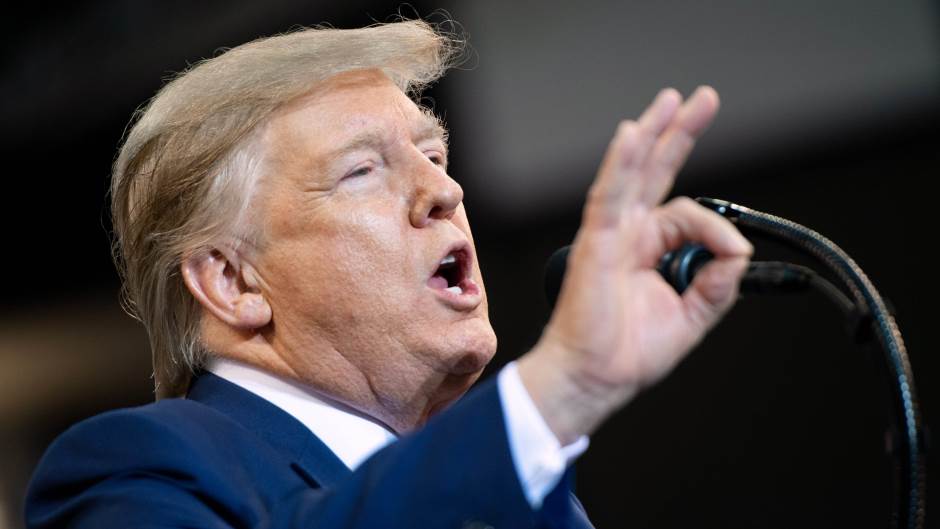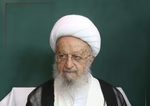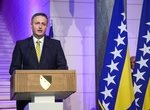
Trump said he was applying harsh new sanctions on certain Turkish officials, and in a phone call with Turkish President Recep Tayyip Erdoğan, Trump "could not have been more firm" in expressing his displeasure at the incursion, according to Vice President Mike Pence, who updated reporters at the White House on Monday evening.
Pence said he would travel soon to Turkey to help broker some type of ceasefire between Turkey, Syria and the Kurdish forces who have aligned with the Syrian regime after US troops -- with whom the Kurds were previously allied -- withdrew from the area.
After days of withering criticism from many Republicans and national security veterans, Monday's developments reflected an attempt by the White House to adopt a firmer stance as northern Syria descends into mayhem.
In his surprise appearance on the White House driveway, Pence was adamant that Trump's decision to pull troops from the area did not lead to the current chaos -- an accusation that's been lobbed even by some of his allies.
"The United States of America did not give a green light for Turkey to invade Syria," Pence said.
Standing alongside him, Treasury Secretary Steven Mnuchin said the new sanctions would be slapped on the Turkish ministers of defence, interior and energy.
Even as Trump was preparing the economic punishment, a bipartisan group on Capitol Hill was finalizing their own sanctions, threatening to undermine the President's attempts at confronting the growing crisis.
On Monday afternoon, Trump tweeted a statement saying he would soon authorize via executive order new sanctions on current and former Turkish officials. He said he'd also reimpose heavy duties on Turkish steel and cut off trade talks.
"Turkey's military offensive is endangering civilians and threatening peace, security, and stability in the region," Trump's statement read. "I have been perfectly clear with President Erdogan: Turkey's action is precipitating a humanitarian crisis and setting conditions for possible war crimes."
The scramble to apply new sanctions came after Trump's decision to withdraw US troops from northern Syria, a move that paved the way for Turkey's military offensive. Even some of Trump's fiercest defenders have questioned his decision, and senior national security veterans have decried the move as abandoning Kurdish allies.
Senate Majority Leader Mitch McConnell said Monday he is "gravely concerned" about events in Syria that could lead to a "resurgence of ISIS."
"I look forward to discussing what the United States can do to avoid a strategic calamity with my Senate colleagues and with senior administration officials when the Senate returns to Washington this week," the Kentucky Republican said in a statement.
Despite Monday's actions, Trump has defended his decision and shown little evidence he's second-guessing his instinct with bringing home American troops abroad.
"Anyone who wants to assist Syria in protecting the Kurds is good with me, whether it is Russia, China, or Napoleon Bonaparte. I hope they all do great, we are 7,000 miles away!" he tweeted shortly before announcing the new sanctions.
Still, Trump had registered the criticism emerging from all corners and pushed his advisers to develop some type of response.
Trump met Monday with top administration officials -- including Secretary of State Mike Pompeo, Treasury Secretary Steve Mnuchin and national security adviser Robert O'Brien -- to discuss options for punishing Turkey economically after Turkish forces launched a military offensive in northeast Syria last week.
But as his team was walking over to the White House residence for the meeting, lawmakers on Capitol Hill forged ahead with their own plans to impose the sanctions.
House Speaker Nancy Pelosi said Monday morning that she spoke on the phone with Sen. Lindsey Graham, one of Trump's staunchest allies who nonetheless oppose his Syria policy, about potential sanctions. They later tweeted that they agree "we must have a bipartisan, bicameral joint resolution to overturn the President's dangerous decision in Syria immediately."
Pelosi claimed that Congress should pursue "a stronger sanctions package than what the White House is suggesting."
Graham and Democratic Sen. Chris Van Hollen on Wednesday introduced an outline for strict sanctions on Turkey, and the proposal has quickly picked up support among members from both parties.
White House aides had feared Congress would vote to impose the sanctions before Trump could decide whether to pursue them -- a rebuke that would embarrass the White House and expose how little support the President's Syria decision has in his own party. Some aides feared the Graham-Van Hollen bill was heading toward passage with a veto-proof majority, which occurred in 2017 when Congress voted to hit Russia with sanctions over Trump's reservations.
There is no evidence Trump laid out the possible punishment on Turkey when he spoke by phone last weekend with President Recep Tayyip Erdoğan, a conversation that ended with a statement from the White House that Turkey "will soon be moving forward with its long-planned operation" in northern Syria.
The White House also announced that Erdoğan would visit the White House next month, a meeting that so far has not been publicly delayed or cancelled. Pence said Monday there was "no decision" on the meeting.
After it became clear that Turkey's planned operation would cause havoc in the region, Trump vaguely threatened to sanction the country amid a barrage of criticism from even his closest allies on Capitol Hill, claiming he would "totally destroy and obliterate the Economy of Turkey" if in his "great and unmatched wisdom" he decided Erdoğan had gone too far.
But just two days after Graham and Van Hollen unveiled their bill, Mnuchin was at the White House briefing room podium touting the "very significant new sanctions authorities" that Trump had granted the Treasury Department. The President had not greenlighted any actual sanctions, however, and the announcement was viewed as little more than a verbal warning.
By Sunday, Trump tweeted that he was working with Graham on a sanctions plan and that Treasury would take the lead on executing it. But the following morning, Graham said on Fox News that Congress would be the one imposing those sanctions -- deepening the confusion sowed by Trump's approach to the conflict in Syria.
Trump's decision last week to allow Turkish forces to attack the Kurds in Syria drew fierce backlash not only from Democratic lawmakers but also from congressional Republicans who generally avoid splitting with the President. One Republican lawmaker, retiring Illinois Rep. John Shimkus, has even renounced his support for Trump altogether because of the policy shift.
While Mnuchin and Trump have both threatened to retaliate economically against Turkey, neither have outlined specific criteria that would trigger the response. Lawmakers, however, are signalling they have already seen enough from Turkish forces to move ahead with sanctions. A senior Republican Senate aide claimed Monday morning that US sanctions for Turkey are "being driven by the Senate, not the administration."
Graham said Monday that he planned to meet with Trump as the two seemingly race to be the one spearheading the sanctions. The South Carolina Republican noted earlier Monday that congressional action on sanctions would "supplement what President Trump's administration has done," although the administration has so far done nothing to retaliate for Turkey's military incursion.
The Graham-Van Hollen bill, which would be the most likely vehicle for moving sanctions through Congress, would sanction the assets of top Turkish leaders -- including its President -- and bar transactions involving the Turkish defence and energy sectors, among other penalties.
But despite the momentum behind the legislation, some Democrats argue that Republicans should still do more to urge Trump to change course.
"Spare me the nonsense on sanctions," wrote Connecticut Sen. Chris Murphy. "People are being slaughtered RIGHT NOW. Bombs are dropping on children RIGHT NOW. Instead of drafting sanctions bills, Republicans should use their massive leverage over the President to get him to change course. RIGHT NOW."
Kakvo je tvoje mišljenje o ovome?
Učestvuj u diskusiji ili pročitaj komentare





 Srbija
Srbija
 Hrvatska
Hrvatska
 Slovenija
Slovenija



























































